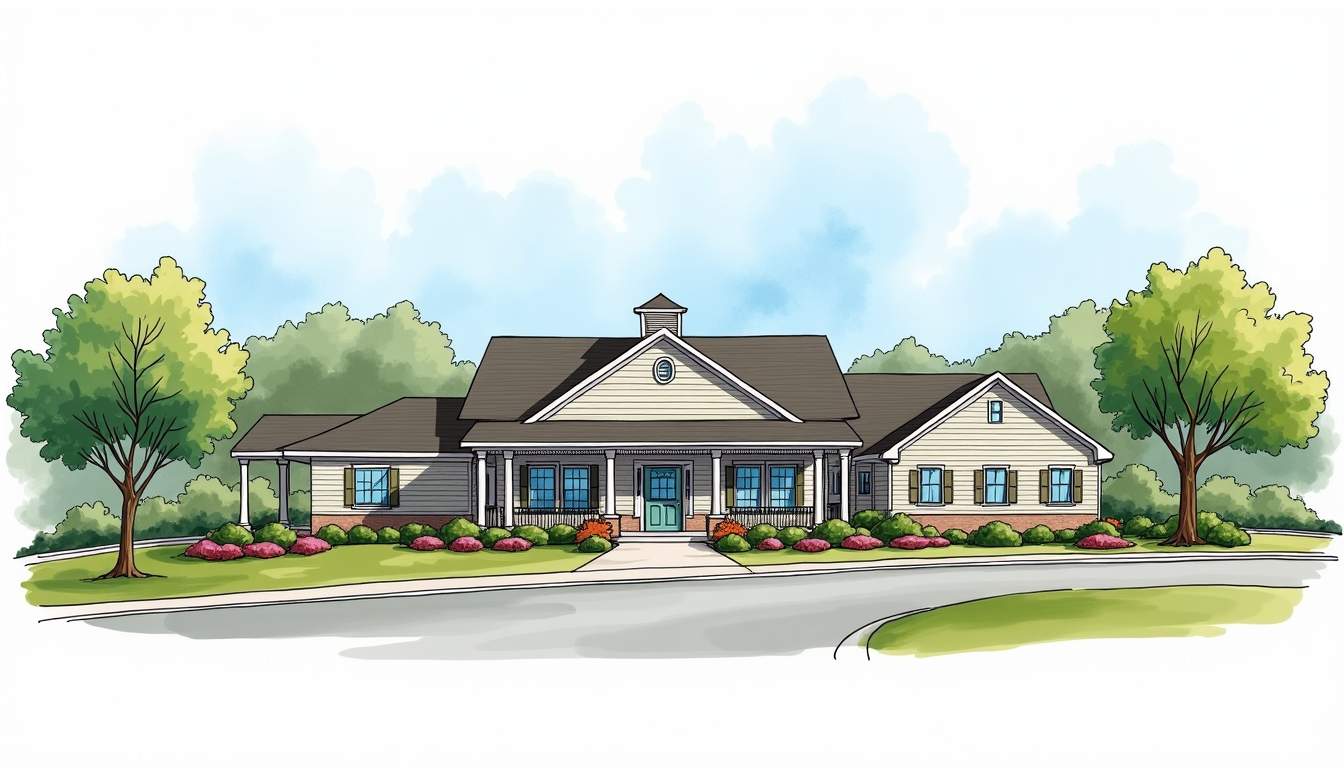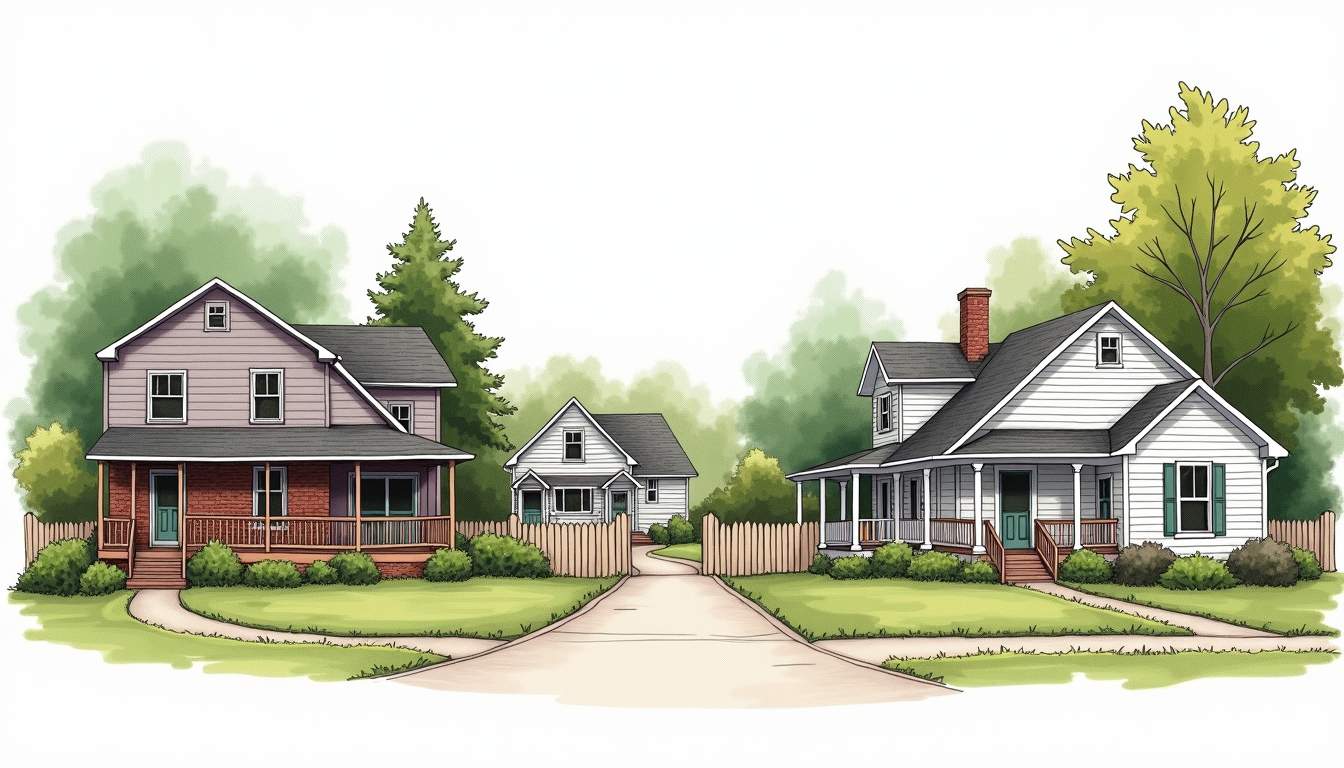
For members of private clubs, country clubs, or specialty communities in East Tennessee, the real estate market offers a small but enticing subset of properties that aren't always available to the general public. This guide explores how those exclusive listings work, where to find them, and what to consider when buying a home tied to club membership in the Knoxville, Chattanooga, and Tri-Cities regions as well as the mountain communities near the Smokies.
Homes marketed to club members often come with unique terms, amenities, and expectations. A property on a golf course might include automatic membership transfer, while a lakefront home could offer dock rights or preferred access to marina services. The sales process tends to have additional layers, including club approval, transfer fees, and rules that affect renovations or rentals.

Because these homes are marketed within a specific network, inventory can be limited. Some listings never hit public MLS or receive early exposure to members through private newsletters and club real estate boards. That scarcity can preserve values in sought-after enclaves but also complicate timelines for buyers who need to move quickly.
Clubs use a variety of member-only channels—bulletin boards, email lists, and online portals—to circulate property opportunities. These channels foster word-of-mouth deals where a seller prefers to transact within the membership. For buyers, enrolling in club real estate updates or building relationships with club staff and realtors who specialize in the community increases the likelihood of hearing about listings early.
Many club-affiliated properties carry rules regarding use, occupant qualifications, and even exterior alterations. Transfer fees and initiation charges are common and can be significant, especially at high-end facilities. Buyers should understand approval criteria; some clubs require a formal vote by the board or membership committee to approve new owners, which can add time and uncertainty to closing.
East Tennessee encompasses diverse landscapes and market types. Each area offers club-linked real estate with its own character—urban golf communities near Knoxville, scenic mountain retreats outside Gatlinburg, and riverfront properties near Chattanooga. Understanding local dynamics helps match preferences with realistic options.
Knoxville features several country club communities that blend suburban convenience with recreational amenities. Look for neighborhoods that provide quick commutes to downtown, access to private golf courses, and social calendars that make club life vibrant year-round. Proximity to I-40 and major employers can influence resale value, so weigh lifestyle benefits against long-term marketability.
Chattanooga mixes outdoor lifestyle with an active arts and dining scene. Club members often favor river-access homes and gated communities that offer marina privileges, tennis courts, and communal green spaces. The city's topography means some properties offer dramatic views, but also require attention to access, driveways, and maintenance on sloped lots.
The Tri-Cities area—Johnson City, Kingsport, and Bristol—offers a quieter market with club options that emphasize privacy and outdoor pursuits. Homes here may appeal to buyers seeking lower taxes and a slower pace. Club amenities can include equestrian facilities, hunting preserves, and smaller, tight-knit golf clubs.
Within reach of Gatlinburg and Pigeon Forge, mountain communities attract members who value scenic vistas, hiking access, and vacation-style living. Lake communities around Douglas Lake or Cherokee Lake often pair private dock space with social clubs. Seasonal fluctuations in demand are common, so consider whether the property will be a primary residence, vacation home, or rental.
Beyond the purchase price, club-linked properties bring additional financial layers. Initiation fees, monthly dues, and special assessments can add thousands each year. These costs are part of the lifestyle but also influence affordability and long-term ownership decisions.
Many clubs require an initiation fee when ownership transfers, sometimes tiered based on timing or membership category. Transfer fees may be negotiable, especially if the seller prefers a quick sale. Clarify what the fee covers—full membership, limited access, or social privileges—and whether the fee is refundable under any circumstances.
Dues fund operations, staff, and maintenance of facilities. Special assessments can be levied for major repairs or upgrades to club property. Review recent financial statements and minutes from membership meetings when possible; they reveal trends in spending and whether large capital projects are planned.
Insurance requirements for club properties can be specific, especially in areas prone to climate-related risks like flooding or wildfires. Homeowners association rules often dictate exterior maintenance and landscaping standards, which may require hiring approved contractors. Budgeting for these recurring expenses prevents surprises after closing.
Accessing exclusive listings requires a targeted approach. Real estate professionals who specialize in club communities, along with active participation in club life, are both effective paths. Networking remains a powerful tool—members talking to members often generates off-market opportunities.

Look for agents with a track record in the specific club or community of interest. These specialists understand bylaws, fee structures, and the nuances of club approval processes. They can navigate paperwork, coordinate with club managers, and advise on fair market value for properties that may not be widely advertised.
Visibility within the club helps buyers hear about upcoming listings and creates goodwill among members who may prefer to sell within the community. Participating in social events, charity functions, and volunteer committees increases chances of connecting with potential sellers.
Some clubs maintain internal real estate boards, email lists, and member directories. Establishing a presence on these channels, with permission, can signal a serious intent to buy and invite direct outreach. Sellers often value the certainty and simplicity of an internal transaction.
Club properties often have specialized features—private docks, community-maintained seawalls, or shared irrigation systems—that require targeted inspection. The negotiation process should account for the condition of shared facilities and any planned improvements that affect future dues.
Hire inspectors experienced with the property type. For waterfront homes, an inspection of dock integrity, bulkhead condition, and waterline erosion is essential. For mountain properties, evaluate driveway stability, drainage, and potential for seasonal access issues. Inspection reports inform negotiation and future budgeting.
Appraisals must consider recent sales within the same club or similar communities. Because off-market club sales can skew public data, work with appraisers who understand the membership-driven market. Accurate appraisals protect buyers and lenders from overpaying in thin markets.
Include clear terms for who pays initiation and transfer fees, responsibility for outstanding dues, and contingencies tied to club approval. If renovation plans are in mind, confirm that the club's architectural review committee approves proposed changes to avoid costly rework later.
Club properties can serve as primary residences, weekend retreats, or rental investments. Each scenario carries different priorities—commute times and schools for full-time residents, low-maintenance features and rental policies for investors, and accessibility for owners who visit seasonally.
When the club home will be lived in full-time, proximity to work, schools, and medical services matters. The social aspects of the club should also align with daily life: active calendars, family programs, and wellness resources enhance long-term satisfaction and community integration.
Second homes prioritize convenience and low upkeep. Properties with lock-and-leave features, on-site management, or concierge services reduce the burden on remote owners. Consider whether the club allows short-term rentals if occasional rental income is desired.
Not all clubs permit rentals, and some impose blackout periods or require owner-occupancy for a set number of days each year. If renting is allowed, study local demand patterns—seasonality in mountain and lake markets can affect occupancy rates and pricing. Ensure property management is feasible from a distance.
Several recurring scenarios illustrate pitfalls and best practices. Sellers who forget to disclose outstanding assessments, buyers who underestimate transfer fees, and owners who plan renovations without club approval are typical examples. Learning from these prevents unnecessary delays and expenses.

Unpaid HOA or club assessments can attach to the property and become the buyer's responsibility. Title searches and a thorough closing checklist help uncover these liabilities early. Insisting on seller-paid clearance of outstanding fees is a practical step in negotiation.
Clubs may offer varying membership types—full, social, junior, or non-resident—with different levels of access. Confirm which category transfers with the sale and whether upgrading or downgrading membership is possible, and at what cost.
Architectural guidelines can be strict, dictating materials, colors, and landscaping. Pre-approve plans with the club and factor potential compliance costs into renovation budgets. Doing so avoids enforcement actions and preserves community aesthetics.
Club-linked homes in East Tennessee offer a compelling combination of lifestyle and community, but they require due diligence beyond a typical real estate transaction. Understanding club governance, cost structures, and the local market ensures a better match between personal priorities and property selection.
For buyers, the key is balancing the appeal of exclusivity with clarity about long-term obligations. For sellers, transparent disclosures and engagement with club processes smooth the path to a successful sale. With the right preparation and local expertise, joining a club community can be both rewarding and financially sound.
Ready to embrace the exceptional lifestyle that East Tennessee club communities offer? Tennessee National combines luxury living with unmatched amenities, from a Greg Norman Signature Golf Course to a private marina and waterfront dining. Whether you seek a move-in ready residence or a custom home, explore resort-style living tailored just for you. Schedule a Private Tour today and take the first step toward becoming part of this vibrant, gated community.